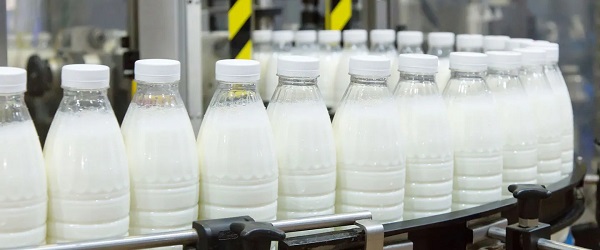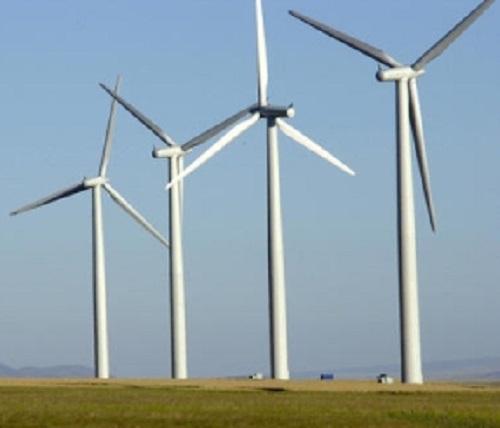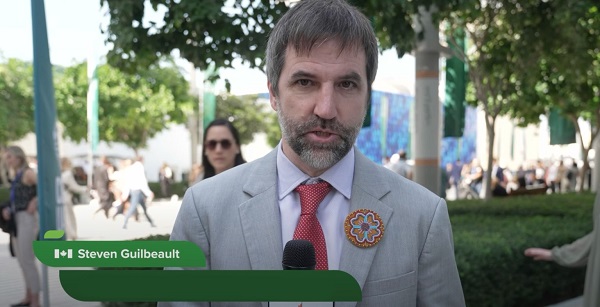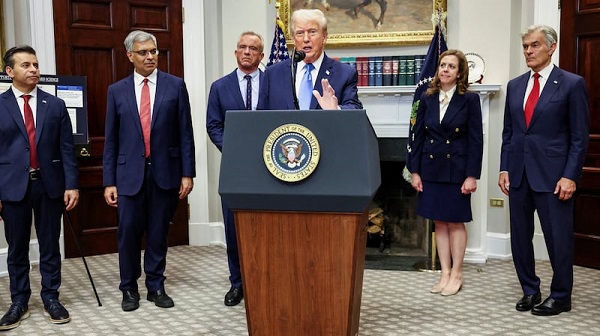Food
Trump says Coca-Cola will switch to real cane sugar in U.S.

Quick Hit:
President Trump announced Wednesday that Coca-Cola will start using real cane sugar in its U.S. beverages, calling the decision “a very good move.” In a Truth Social post, Trump said he had spoken directly with the company and thanked its leadership for the change.
Key Details:
- Trump wrote, “I have been speaking to Coca-Cola about using REAL Cane Sugar in Coke in the United States, and they have agreed to do so.”
- He praised the company’s leadership, saying, “This will be a very good move by them — You’ll see. It’s just better!”
- U.S. Coca-Cola currently uses high fructose corn syrup, unlike versions in Mexico and the UK that use cane sugar.
Diving Deeper:
President Donald Trump on Wednesday said that Coca-Cola is set to bring real cane sugar back into its U.S. soft drinks — a switch many longtime Coke fans have long desired. Posting on Truth Social, Trump wrote: “I have been speaking to Coca-Cola about using REAL Cane Sugar in Coke in the United States, and they have agreed to do so.”
The president continued, “I’d like to thank all of those in authority at Coca-Cola. This will be a very good move by them — You’ll see. It’s just better!”
Coca-Cola has used high fructose corn syrup in the United States since the 1980s, largely due to domestic corn subsidies and the higher cost of imported sugar. However, the cane sugar version — still available in Mexico and much of Europe — remains popular among American consumers, with many saying it offers a cleaner, smoother flavor.
Trump’s comments immediately drew attention both for the policy implication and the personal touch. Though the president is known for his affinity for Diet Coke, which contains no sugar at all, his interest in restoring cane sugar to the classic formula taps into a broader nostalgia many Americans have for pre-1980s Coke.
No formal announcement has yet been made by Coca-Cola itself, and it remains unclear if the reported agreement pertains to all Coke products or specific regional lines. But Trump’s declaration is already generating buzz among fans of the brand and supporters.
(AP Photo/Lynne Sladky)
Business
Canada’s ‘supply management’ system makes milk twice as expensive and favours affluent dairy farms

From the Fraser Institute
By Fred McMahon
While the Canada-U.S. trade negotiations continue, with much speculation about potential deals, one thing is certain: Canada’s agricultural marketing boards remain a barrier to success.
A White House official said as much: “[Canada] has repeatedly demonstrated a lack of seriousness in trade discussions as it relates to removing trade barriers.” That’s a clear reference to agricultural marketing boards, our Iron Curtain trade barrier. International trade lawyer Lawrence L. Herman aptly described boards as “Canada’s Soviet-style supply management system.”
Agricultural marketing boards are as Canadian as maple syrup, but more so. Maple syrup is international. Supply management is uniquely Canadian. No other country has such a system. And for good reason. It’s odious policy, favouring an affluent few, burdening the poorest, and creating needless friction with allies and trading partners.
President Trump’s distaste for the boards is well known. But, it’s not just Donald. The European Union, the United Kingdom, the World Trade Organization (effectively all of Canada’s trading partners)—and, wait for it, the majority Canadian farmers—all oppose the boards.
Canada claims to support free trade, except when we don’t. Canada seals off a large portion of its agricultural market with the system, but gets irritable when another country closes part of its market—say for autos, aluminum or steel.
Marketing boards employ a variety of tools, including quotas and tariffs, and a large bureaucracy to block international and interprovincial trade and deprive Canadians of choice in dairy, eggs and poultry. Without competition, productivity stagnates and prices soar.
The cost of living in the United States is 8.4 per cent higher than in the Canada, rent 14.9 per cent higher. But, thanks to our marketing boards, milk is twice as expensive—C$3.07 a litre on average in Canada versus C$1.47 in the United States. The most recent estimate of the cost of the system revealed, using 2015 data, that the average Canadian household pays an extra $300 to $433 annually because of marketing boards, hitting hard poorer Canadians, who spend a higher portion of their income on food than affluent Canadians.
Martha Hall Findlay, former Liberal MP and leadership contender, now director of the University of Calgary’s School of Public Policy, wrote with outrage, “The average Canadian dairy farm’s net worth is almost $4 million…. This archaic [supply-management] system forces a single mother on welfare to pay hundreds of dollars more per year than she needs to, just so we can continue to enrich a small number of cartel millionaires… members of the oft-vilified ‘one-percent’.”
Don’t expect meaningful negotiations. Canada’s Parliament, endorsed by the Senate, recently unanimously passed Bill C-202, which prohibits the foreign affairs minister from negotiating increased quotas or reduced tariffs for imports of supply-managed products.
The dairy industry, particularly in Quebec, is the big player. To protect this mighty lobby, Bloc Québécois Leader Yves-François Blanchet proposed C-202, backed by all parties, fearing a Quebec backlash if they stood up for Canadians, including for Quebecers who lack the privilege of owning one of province’s 4,200 multi-million-dollar dairy farms of Canada’s 9,400.
The Canadian Agri-Food Trade Alliance (CAFTA), Grain Growers of Canada (GGC), and other farm groups oppose C-202. Scott Hepworth, acting chair of GGC, said, “Parliament chose to prioritize one group of farmers over another. As a grain producer, I know firsthand how important international trade is to my family’s livelihood. Without reliable access to global markets, farmers like me are left behind.”
Canada has 65,000 grain farms and 53,000 pig and beef farms, compared to 14,700 supply-managed farms, less than one per cent of the total of 190,000 farms in Canada.
Marketing boards benefit a tiny minority of Canadian farmers while damaging the majority and increasing prices for all Canadians. One benefit of Donald Trump’s trade war against Canada has been the resolve on all levels of government to reduce home-grown obstacles to growth, including iron trade curtains between provinces.
The spineless response to C-202 reveals the weakness of that resolve and politician’s willingness to bend the knee to rich lobbies, toss other farmers under the bus, and carelessly pile on costs for Canadians, particularly low-income ones.
Agriculture
In the USA, Food Trumps Green Energy, Wind And Solar


From the Daily Caller News Foundation
By Bonner Cohen
“We will not approve wind or farmer destroying Solar,” said President Trump in an Aug. 20 post on Truth Social. “The days of stupidity are over in the USA!!!”
Trump’s remarks came six weeks after enactment of his One Big Beautiful Bill terminated tax credits for wind and solar projects by the end of 2027.
The Trump administration has also issued a stop-work order for the Revolution Wind project, an industrial-scale offshore wind project 12 miles off the Rhode Island coast that was 80 percent completed. This was followed by an Aug. 29 announcement by the Department of Transportation that it was cutting around $679 million in federal funding for 12 offshore wind farms in 11 states, calling the projects “wasteful.”
Sending an unmistakable message to investors to avoid risking their capital on no-longer-fashionable green energy, the Department of Agriculture (USDA) is pulling the plug on a slew of funding programs for wind and solar power.
“Our prime farmland should not be wasted and replaced with green new deal subsidized solar panels,” said Agriculture Secretary Brooke Rollins on a visit to Tennessee in late August. “We are no longer allowing businesses to use your taxpayer dollars to fund solar projects on prime American farmland, and we will no longer allow solar panels manufactured by foreign adversaries to be used in our USDA-funded projects.”
The White House is putting the squeeze on an industry that can ill-afford to lose the privileges it has enjoyed for so many years. Acknowledging the hesitancy of investors to fund green-energy projects with the looming phaseout of federal subsidies, James Holmes, CEO of Solx, a solar module manufacturer, told The Washington Post, “We’re seeing some paralysis in decision-making in the developer world right now.” He added, “There’s been a pretty significant hit to our industry, but we’ll get through it.”
That may not be easy. According to SolarInsure, a firm that tracks the commercial performance of the domestic solar industry, over 100 solar companies declared bankruptcy or shut down in 2024—a year before the second Trump administration started turning the screws on the industry.
As wind and solar companies confront an increasingly unfavorable commercial and political climate, green energy is also taking a hit from its global financial support network.
The United Nations-backed Net Zero Banking Alliance (NZBA) “has suspended activities, following the departure of numerous financial institutions from its ranks amid political pressure from the Trump administration,” The Wall Street Journal reported. Established in 2021, the NZBA’s 120 banks in 40 countries were a formidable element in global decarbonization schemes, which included support for wind and solar power. Among the U.S. banks that headed for the exits in the aftermath of Trump’s election were JP Morgan, Citi, and Morgan Stanley. They have been joined more recently by European heavyweights HSBC, Barclays, and UBS.
Wind and solar power require a lot of upfront capital, and investors may be having second thoughts about placing their bets on what looks like a losing horse.
“Wind and solar energy are dilute, intermittent, fragile, surface-intensive, transmission-extensive, and government-dependent,” notes Robert Bradley, founder and CEO of the Institute for Energy Research.
Given these inherent disadvantages of wind and solar power, it’s no surprise that the Department of Agriculture is throttling the flow of taxpayer money to solar projects. The USDA’s mission is to “provide leadership on food, agriculture, food, natural resources, rural development, nutrition, and related issues….” It is not to help prop up an industry whose best days are behind it.
Effective immediately, wind and solar projects will no longer be eligible for USDA Rural Development Business and Industry (B&I) Guaranteed Loan Program. A second USDA energy-related guaranteed loan program, known by the acronym REAP, will henceforth require that wind and solar installations on farms and ranches be “right-sized for their facilities.”
If project applications include ground-mounted solar photovoltaic systems larger than 50 kilowatts or such systems that “cannot document historical energy usage,” they will not be eligible for REAP.
Ending Misallocation Of Resources
“For too long, Washington bureaucrats and foreign adversaries have tried to dictate how we use our land and our resources,” said Republican Rep. Harriot Hagermann of Wyoming. “Taxpayers should never be forced to bankroll green new deal scams that destroy our farmland and undermine our food security.”
Hagermann’s citing of “foreign adversaries” is a clear reference to China, which is by far the world’s leading manufacturer of solar panels, according to the International Energy Agency.
According to a USDA study from 2024, 424,000 acres of rural land were home to wind turbines and solar arrays in 2020. While this – outdated – figure represents less than 0.05 percent of the nearly 900 million acres of farmland in the U.S., the prospect of ever-increasing amounts of farmland being taken out of full-time food production to support part-time energy was enough to persuade USDA that a change of course was in order.
Bonner Russell Cohen, Ph. D., is a senior policy analyst with the Committee for a Constructive Tomorrow (CFACT).
-

 Censorship Industrial Complex2 days ago
Censorship Industrial Complex2 days agoCanada To Revive Online Censorship Targeting “Harmful” Content, “Hate” Speech, and Deepfakes
-

 Alberta2 days ago
Alberta2 days agoAlberta refuses to take part in Canadian government’s gun buyback program
-

 Business1 day ago
Business1 day agoTaxpayers deserve proof of how politicians spend their money
-

 Business1 day ago
Business1 day agoOttawa’s civil service needs a Chrétien-style reset
-

 Alberta2 days ago
Alberta2 days agoOrthodox church burns to the ground in another suspected arson in Alberta
-

 Fraser Institute1 day ago
Fraser Institute1 day agoAboriginal rights now more constitutionally powerful than any Charter right
-

 Alberta1 day ago
Alberta1 day ago$150 a week from the Province to help families with students 12 and under if teachers go on strike next week
-

 International1 day ago
International1 day agoArab and Muslim nations rally behind Trump’s Gaza peace plan






